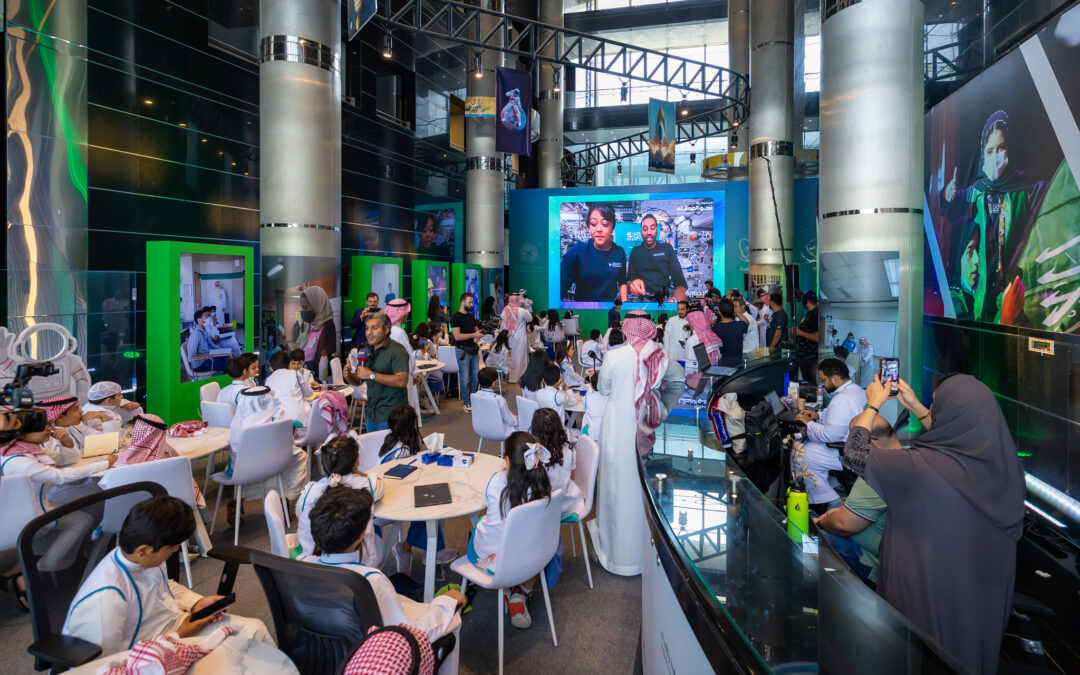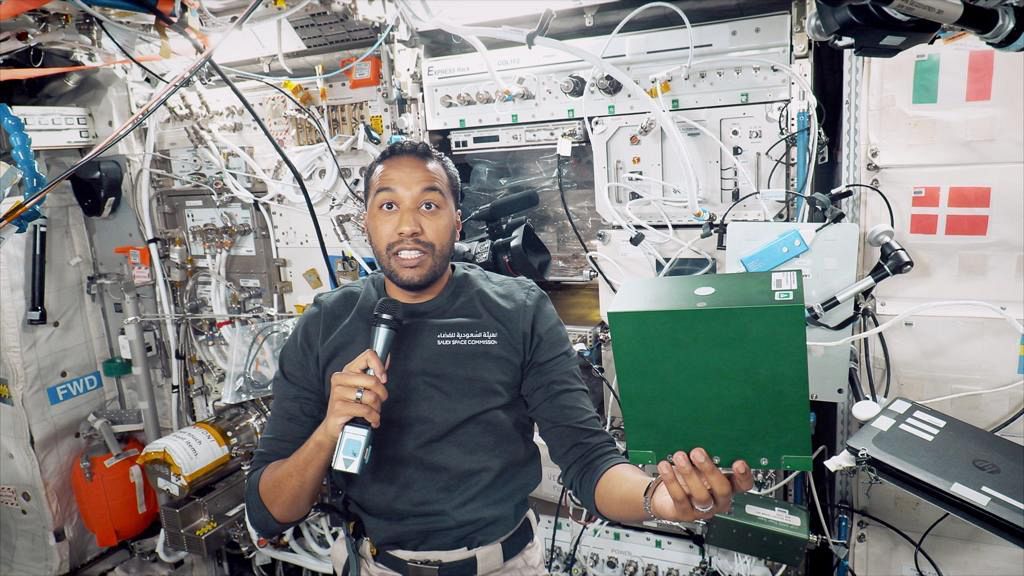Riyadh — Saudi astronauts Rayyanah Barnawi and Ali AlQarni have embarked on their scientific mission AX-2 aboard the International Space Station (ISS).
They are set to make history for the Kingdom of Saudi Arabia in the fields of space and scientific research, with plans to undertake 14 pioneering experiments in microgravity.
Of these, three will be dedicated to educational and motivational purposes, involving the participation of 12,000 Saudi students across 47 locations in the Kingdom, all in real time via satellites.
Also Read Soaring success: First Saudi astronauts reach space
This pivotal moment aims to prepare future astronauts and engineers through quality education, training programs, and participation in scientific experiments, international research, and future space-related missions, aligning with the goals of Saudi Vision 2030.
#KSA2Space
— TRENDS (@mena_trends) May 27, 2023
School #students conduct with the two Saudi astronauts @Astro_Rayyanah and @AstroAli11 the interactive experiment "Diffusion of Liquid Colors" via live broadcast. @Axiom_Space #SaudiArabia #ISS @Space_Station
Image Credit: @saudispace pic.twitter.com/yX4vtElVkR
On board the ISS, the Saudi astronauts are conducting six experiments to understand the impacts of space, microgravity, and high radiation environments on the human brain and nervous system.
The research seeks to evaluate the effects of space on human health and the safety implications of space travel on the human brain. It employs innovative neuroscience tools, including measurements of blood flow to the brain, the brain’s electrical activity, non-invasive assessments of intracranial pressure through the eye pupil, and monitoring optic nerve changes over time. The goal is to make future space travel safer for humans.
In addition, the astronauts are conducting four cell science experiments focused on the inflammatory response of human immune cells in microgravity. The research centers on changes in mRNA decay, a process that can inhibit inflammation.

The astronauts will take RNA samples for ground analysis, where investigators will monitor RNA expression patterns and measure thousands of RNA half-lives. The results are expected to advance our understanding of space health and reveal potential biomarkers or therapies for inflammatory diseases on Earth and in space.
To enhance understanding of rain-seeding technology, the astronauts will conduct an artificial rain experiment. They will condense water vapor on plankton and salt atoms in microgravity, simulating the cloud-seeding process used in Saudi Arabia and other countries to boost rainfall.
The findings will help scientists devise new methods to create suitable living conditions for humans in space colonies on the moon and Mars, potentially including artificial rain.
Moreover, three educational awareness experiments will be conducted on the ISS, in real time, for students across Saudi Arabia. This collaboration with the Ministry of Education, Mawhiba, Riyadh Schools, and Misk Schools, will allow students to interact live with the Saudi crew as they conduct their experiments simultaneously on Earth and in space.
The Saudi Space Commission (SSC) highlights the astronauts’ mission as a cornerstone of the Kingdom’s space research and development strategy. This mission marks Saudi Arabia’s ambition to pioneer space exploration as the first Middle Eastern country and to emerge as a global leader in space programs serving humanity.
The SSC views the ISS mission of the two Saudi astronauts as a significant step in the Kingdom’s space program. They expect this venture to inspire Saudi youth to pursue studies in space programs, communications, and satellites, and to further their education in engineering and mathematics.
The mission aims to prepare future Saudi astronauts through quality education and training programs, participation in scientific experiments, international research, and future space-related missions, raising the Kingdom’s stature in space research and development.








